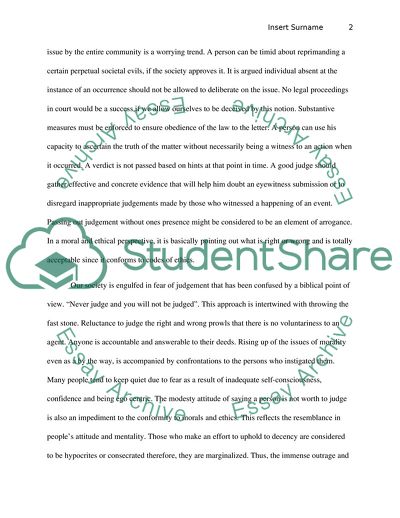Cite this document
(Ethics and Morals Essay Example | Topics and Well Written Essays - 1500 words - 1, n.d.)
Ethics and Morals Essay Example | Topics and Well Written Essays - 1500 words - 1. https://studentshare.org/philosophy/1789784-ethics-and-morals
Ethics and Morals Essay Example | Topics and Well Written Essays - 1500 words - 1. https://studentshare.org/philosophy/1789784-ethics-and-morals
(Ethics and Morals Essay Example | Topics and Well Written Essays - 1500 Words - 1)
Ethics and Morals Essay Example | Topics and Well Written Essays - 1500 Words - 1. https://studentshare.org/philosophy/1789784-ethics-and-morals.
Ethics and Morals Essay Example | Topics and Well Written Essays - 1500 Words - 1. https://studentshare.org/philosophy/1789784-ethics-and-morals.
“Ethics and Morals Essay Example | Topics and Well Written Essays - 1500 Words - 1”. https://studentshare.org/philosophy/1789784-ethics-and-morals.


